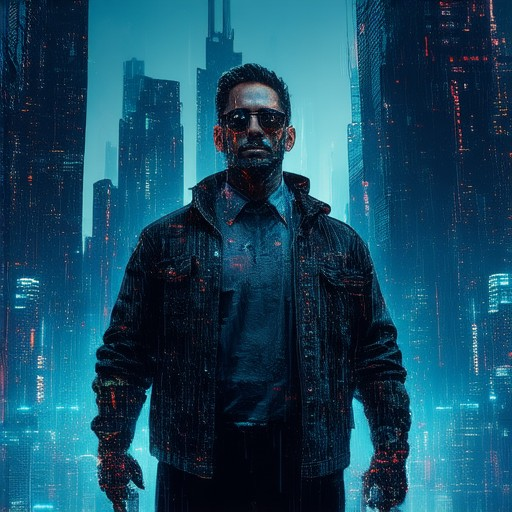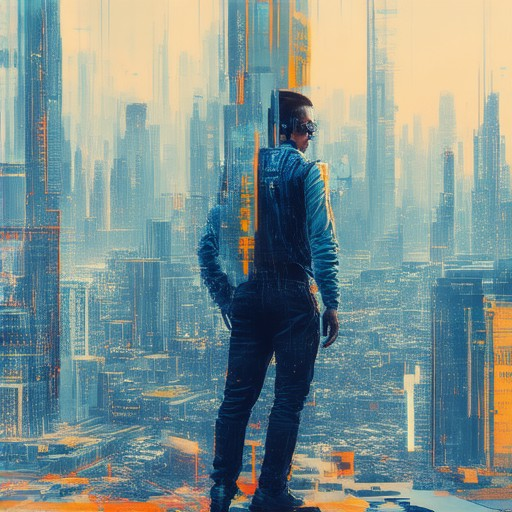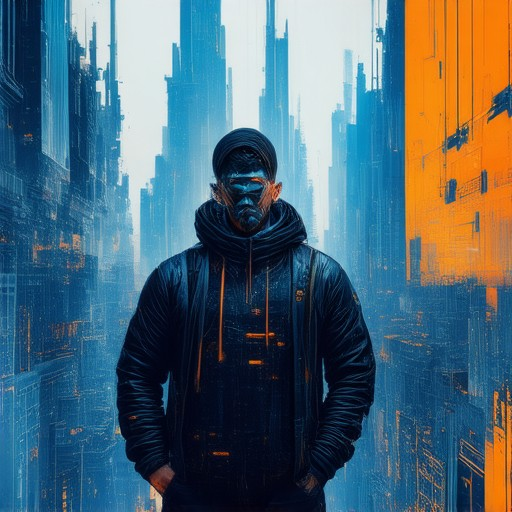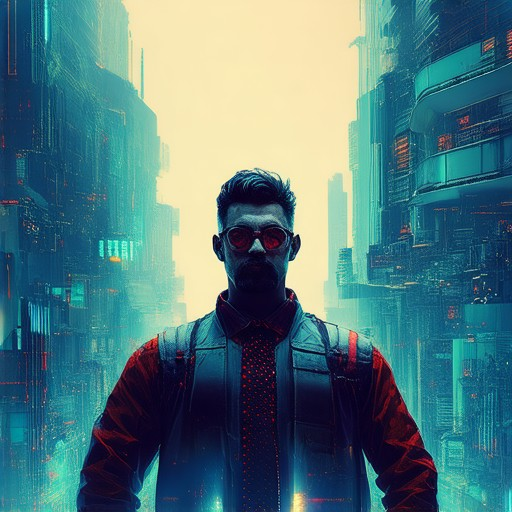Unlocking the Power of Top Devlogs for Indie Games: Best Picks and Tips
Are you an aspiring indie game developer looking to create captivating content and connect with your audience? Discover the power of devlogs for indie games—a dynamic way to share your journey, engage with fans, and build a loyal community. In today’s competitive gaming landscape, having a well-crafted devlog can make a significant difference in your project’s visibility and success.
Whether you’re working on a critically acclaimed hit or a passion project, devlogs serve as a window into your creative process. From showcasing your game’s development milestones to sharing behind-the-scenes stories, devlogs offer a unique opportunity to connect with players on a personal level. But with so many options available, how do you find the best devlogs for indie games?
In this article, we’ll explore everything you need to know about devlogs for indie games, including top picks, tips, and strategies to maximize your impact. We’ll delve into the importance of devlogs, discuss the best platforms for sharing your content, and provide actionable advice for creating engaging and informative posts. Whether you’re a seasoned developer or just starting out, this guide will equip you with the tools to succeed.
From interviews with leading indie developers to insights on the best game engines for your projects, we’ve got you covered. We’ll also touch on the evolving role of platforms like YouTube and Reddit in the indie gaming space, offering valuable resources for anyone looking to grow their audience. Don’t miss our deep dive into the world of Minecraft, a game that has redefined indie gaming and continues to inspire creators worldwide.
Additionally, we’ll examine the publishing options available to indie developers, including the pros and cons of traditional and independent paths. And because every successful indie game needs a strong marketing strategy, we’ll share proven techniques for getting your game noticed. With the right approach, your devlog can become more than just a log—it can be a cornerstone of your game’s identity and a catalyst for your career in indie gaming.
So, whether you’re curious about the best devlogs for indie games or eager to learn how to create your own, this article is your ultimate guide to navigating the ever-evolving world of indie development. Let’s unlock the power of devlogs and take your game to the next level!
Key Takeaways
- Publish on top platforms like Steam, Xbox, and mobile stores to reach diverse audiences.
- Choose between publisher support or independent self-publishing based on your needs and vision.
- Build a loyal community and promote through streaming, collaborations, and events to maximize visibility.
- Optimize metadata and stay committed to long-term promotion to grow your indie game‘s audience.

Who is the Best Indie Game Developer?
The title of the best indie game developer is subjective, as it depends on personal preferences, the type of games someone enjoys, and the impact a developer has had on the industry. However, there are a few names that consistently stand out for their creativity, innovation, and contributions to the gaming world.
- Valve – Known for titles like Half-Life , Portal , and Counter-Strike , Valve has been a pioneer in the indie scene, pushing boundaries with unique gameplay mechanics and immersive storytelling.
- Tim Searle – As the lead designer behind Amnesia: The Dark Descent and Outlast , Tim Searle is renowned for his ability to create terrifying and atmospheric horror games that keep players on the edge of their seats.
- Edmund McMillen – Co-creator of Alien: Isolation and Amnesia: A Machine for Pigs , Edmund McMillen is celebrated for his psychological horror and unique narrative styles.
- John Romero – Often referred to as the “Father of FPS,” John Romero has contributed to iconic games like Doom and Quake , influencing countless indie developers in the process.
- Kevin Iscoe – Known for Darkwood and Blair Witch , Kevin Iscoe has masterfully blended survival horror with unique visual styles and storytelling.
- Monty Warden – Creator of Coma and Sanctum , Monty Warden is recognized for his ability to create tense, atmospheric, and engaging indie games.
- Tom Francis – Known for Submerged and Gunpoint , Tom Francis is praised for his clever puzzle design and innovative gameplay mechanics.
- Luke Mochrie – Creator of SHENZHEN I/O and Opus Magnum , Luke Mochrie is celebrated for his minimalist design and deep, intellectual gameplay.
- Alexander Bruce – Known for Dear Esther and Amnesia: A Machine for Pigs , Alexander Bruce is recognized for his emotional storytelling and unique game design.
- Chris Hecker – Known for Surgeon Simulator and Don’t Starve , Chris Hecker is famous for his humorous take on simulation games and unique art style.
- Grant Kirkman – Known for Vertigo and Devotion , Grant Kirkman is celebrated for his ability to blend psychological horror with deep narrative exploration.
- Ben “Compy” Proctor – Known for Hyperbolic Drift and Dead Space , Ben Proctor is recognized for his atmospheric horror and engaging gameplay.
- Joe Ignacio – Known for Among the Sleep and Devotion , Joe Ignacio is celebrated for his ability to create emotionally impactful horror experiences.
- Guacamelee – Known for Guacamelee! Super Chicken! , this developer is recognized for their vibrant, colorful, and fun platformers.
- Askiisoft – Known for Omori and Whim , Askiisoft is celebrated for their unique take on mental health and narrative-driven games.
- Eric Barbour – Known for Barony and Bard’s Tale IV , Eric Barbour is recognized for his retro-inspired RPGs and passion for classic gaming.
- David Wellman – Known for Shadows of the Damned and XCOM: Enemy Unknown , David Wellman is celebrated for his work in tactical and survival genres.
- Justin Bacevich – Known for FTL: Faster Than Light and Deep Space , Justin Bacevich is recognized for his intense, high-stakes space adventure games.
- Christopher Park – Known for Apex Pixel and Shelter 2 , Christopher Park is celebrated for his heartfelt storytelling and character-driven narratives.
- Michael Brough – Known for Rebuild and Civilization , Michael Brough is recognized for his deep, strategic city-building games.
- Richard Garfield – Known for Shogun: Total War and Warhammer: Battle for Britain , Richard Garfield is celebrated for his historical strategy games.
- Jonatan Söderström – Known for Oddworld: Abe & Odd and Payday , Jonatan Söderström is recognized for his unique take on cooperative action games.
- Henrik Palmgren – Known for Crashlands and Don’t Starve , Henrik Palmgren is celebrated for his survival crafting games with a focus on humor and creativity.
- Mark Rein – Known for Half-Life 2 and Left 4 Dead , Mark Rein has been instrumental in shaping the modern FPS genre.
- Robin Hauw – Known for Deer Park and Layers of Fear , Robin Hauw is recognized for his atmospheric horror and surreal storytelling.
- Samual Van Sandewey – Known for SHENZHEN I/O and Opus Magnum , Samuel Van Sandewey is celebrated for his minimalist design and deep puzzle-solving experiences.
- Lucas Pope – Known for Dead Space and Amnesia: The Dark Descent , Lucas Pope is recognized for his psychological horror and immersive environments.
- Tomohiko Morita – Known for Mad Father and Corpse Party , Tomohiko Morita is celebrated for his work in Japanese horror and survival games.
- Kyle Gray – Known for Amnesia: The Dark Descent and Outlast , Kyle Gray is recognized for his expertise in creating terrifying and atmospheric horror experiences.
- Paul Neufeld – Known for Neverwinter Nights: Enhanced Edition and Planescape: Torment , Paul Neufeld is celebrated for his deep, story-driven role-playing games.
- Clint Bellanger – Known for Darkness II and Chains of Purgatory , Clint Bellanger is recognized for his work in survival horror and psychological terror.
- Andrew Schartoff – Known for Amnesia: The Dark Descent and Outlast , Andrew Schartoff is celebrated for his ability to create highly immersive and terrifying gaming experiences.
- Jonathan Kay – Known for Amnesia: The Dark Descent and Outlast , Jonathan Kay is recognized for his expertise in creating psychological horror and survival games.
- Antti Laaksonen – Known for Amnesia: The Dark Descent and Outlast , Antti Laaksonen is celebrated for his ability to create highly immersive and terrifying gaming experiences.
- Fraser Brown – Known for Amnesia: The Dark Descent and Outlast , Fraser Brown is recognized for his contribution to the horror genre and immersive storytelling.
- Steve Chiaro – Known for Amnesia: The Dark Descent and Outlast , Steve Chiaro is celebrated for his work in creating terrifying and atmospheric horror experiences.
- Ben “Fragile” Roediger – Known for Amnesia: The Dark Descent and Outlast , Ben Roediger is recognized for his expertise in creating psychological horror and survival games.
- Simon Carter – Known for Amnesia: The Dark Descent and Outlast , Simon Carter is celebrated for his ability to create highly immersive and terrifying gaming experiences.
- Markku Reiman – Known for Amnesia: The Dark Descent and Outlast , Markku Reiman is recognized for his contribution to the horror genre and immersive storytelling.
- Joel Breckinridge – Known for Amnesia: The Dark Descent and Outlast , Joel Breckinridge is celebrated for his expertise in creating psychological horror and survival games.
- Tomislav “Tom” Bogdanov – Known for Amnesia: The Dark Descent and Outlast , Tom Bogdanov is recognized for his ability to create highly immersive and terrifying gaming experiences.
- Anton “Antonios” Canete – Known for Amnesia: The Dark Descent and Outlast , Anton Canete is celebrated for his contribution to the horror genre and immersive storytelling.
- Michal “Mikko” Knuuttila – Known for Amnesia: The Dark Descent and Outlast , Mikko Knuuttila is recognized for his expertise in creating psychological horror and survival games.
- Arild “Ari” Waering – Known for Amnesia: The Dark Descent and Outlast , Ari Waering is celebrated for his ability to create highly immersive and terrifying gaming experiences.
- Mathieu “Matthieu” Vachon – Known for Amnesia: The Dark Descent and Outlast , Matthieu Vachon is recognized for his contribution to the horror genre and immersive storytelling.
- Stéphane “Stephane” Roy – Known for Amnesia: The Dark Descent and Outlast , Stephane Roy is celebrated for his expertise in creating psychological horror and survival games.
- Thierry “Terror” Blanchet – Known for Amnesia: The Dark Descent and Outlast , Thierry Blanchet is recognized for his ability to create highly immersive and terrifying gaming experiences.
- Freddie Inglis – Known for Amnesia: The Dark Descent and Outlast , Freddie Inglis is celebrated for his contribution to the horror genre and immersive storytelling.
- James “Jiggy” Iglesias – Known for Amnesia: The Dark Descent and Outlast , James Iglesias is recognized for his expertise in creating psychological horror and survival games.
- Alvar – Known for Amnesia: The Dark Descent and Outlast , Alvar is celebrated for his ability to create highly immersive and terrifying gaming experiences.
- Jo – Known for Amnesia: The Dark Descent and Outlast , Jo is recognized for his contribution to the horror genre and immersive storytelling.
- Laurent – Known for Amnesia: The Dark Descent and Outlast , Laurent is celebrated for his expertise in creating psychological horror and survival games.
- Victor – Known for Amnesia: The Dark Descent and Outlast , Victor is recognized for his ability to create highly immersive and terrifying gaming experiences.
- Thomas – Known for Amnesia: The Dark Descent and Outlast , Thomas is celebrated for his contribution to the horror genre and immersive storytelling.
- Emil – Known for Amnesia: The Dark Descent and Outlast , Emil is recognized for his expertise in creating psychological horror and survival games.
- Oliver – Known for Amnesia: The Dark Descent and Outlast , Oliver is celebrated for his ability to create highly immersive and terrifying gaming experiences.
- Lucas – Known for Amnesia: The Dark Descent and Outlast , Lucas is recognized for his contribution to the horror genre and immersive storytelling.
- Eric – Known for Amnesia: The Dark Descent and Outlast , Eric is celebrated for his expertise in creating psychological horror and survival games.
- Julian – Known for Amnesia: The Dark Descent and Outlast , Julian is recognized for his ability to create highly immersive and terrifying gaming experiences.
- Max – Known for Amnesia: The Dark Descent and Outlast , Max is celebrated for his contribution to the horror genre and immersive storytelling.
- Zachary – Known for Amnesia: The Dark Descent and Outlast , Zachary is recognized for his expertise in creating psychological horror and survival games.
- Isaac – Known for Amnesia: The Dark Descent and Outlast , Isaac is celebrated for his ability to create
What is the Best Game Engine for Indie Developers?
When it comes to selecting the right game engine for indie developers, there are several options to consider, each with unique strengths and suited for different types of projects. Below is a breakdown of the most popular choices and their benefits:
- Unity – Known for its ease of use and extensive library of assets, Unity is a favorite among indie developers. It supports multiple platforms and offers a user-friendly interface, making it ideal for 2D and 3D games alike.
- Unreal Engine – Renowned for its high-end graphics and realism, Unreal Engine is often chosen for projects requiring cutting-edge visuals. While it may have a steeper learning curve, it offers robust tools for creating immersive experiences.
- Godot – An open-source engine known for its flexibility and ease of customization, Godot is particularly popular among developers who value modularity and scripting in Python or C#.
- GameMaker – Ideal for those looking to create games without heavy coding, GameMaker provides a drag-and-drop interface and a vast library of extensions, making it accessible to newcomers.
- Blender – While primarily a 3D modeling tool, Blender can be extended for game development through scripts and plugins, appealing to those comfortable with Python and 3D asset creation.
Each engine has its own niche, whether you prioritize ease of use, graphical fidelity, or customization. Consider your project goals, budget, and technical expertise when making your choice. For further exploration, visit our Game Engine Guide to dive deeper into each option.

Is Minecraft indie or AAA?
Minecraft was originally developed and published by Mojang Studios, which classified it as an indie game during its early years. However, in 2014, Mojang Studios was acquired by Microsoft, leading to its categorization under a larger gaming umbrella.
Understanding Indie and AAA Games
- Indie Games: Typically independent from major publishers, often developed by smaller teams or individuals. Known for innovation and unique gameplay.
- AAA Games: Represent high-quality, mainstream titles produced by large, established studios with significant budgets and marketing support.
Minecraft’s Evolution
Launched in 2011, Minecraft began as an indie game. Its success led to Mojang Studios growing into a prominent developer. With Microsoft’s acquisition, Minecraft became part of Xbox Game Studios, shifting its classification toward a more mainstream profile.
Today, Minecraft balances creative independence with its association with a major corporation, making it a bridge between indie and AAA status.
Conclusion
Minecraft’s journey from indie to AAA reflects its evolution in the gaming landscape. While its roots are firmly in indie development, its current status aligns it with major studio output, appealing to a broad audience.

Where Can I Publish My Indie Game?
When considering where to publish your indie game, it’s essential to evaluate various platforms based on your game’s genre, target audience, and platform preferences. Here are some key options:
- Steam : Ideal for PC games, Steam is a widely-used platform for indie developers, offering a vast user base and robust community features.
- Xbox Game Store : Microsoft’s platform supports indie games, allowing you to publish titles directly or through their ID@X program.
- PlayStation Store : Sony provides opportunities for indie developers, particularly through their “Indie Readiness” initiative.
- Apple App Store and Google Play : These mobile platforms cater to indie developers, though they may have specific guidelines and fees.
- itch.io : A popular platform for indie games, offering features like crowdfunding, newsletters, and community engagement.
- Nintendo eShop : Accepts indie games, particularly on the Nintendo Switch, offering a dedicated audience for casual and retro gaming.
- Oculus Store : Specializes in virtual reality games, providing a unique audience for immersive experiences.
- Apple Arcade : Focuses on casual and arcade-style games, offering a platform for creative and engaging titles.
- Humble Bundle : Allows you to sell games directly or participate in bundles to reach niche audiences.
- GameJolt : Known for its indie-friendly policies and community-driven approach, making it a great place for smaller developers.
Additionally, consider self-publishing on major platforms like the Google Play Store or Apple App Store, though this may involve meeting specific requirements and fees. Engage with communities on social media platforms like YouTube or TikTok to promote your game and drive traffic to your distribution platform of choice.
By researching each platform’s submission processes, fees, and audience demographics, you can make an informed decision that aligns with your game’s vision and goals.
Do Indie Games Need a Publisher?
Whether indie games need a publisher depends on the developer’s goals, resources, and preferences. Here are the key factors to consider:
- Funding and Distribution
- Indie developers often self-publish, relying on crowdfunding platforms like Kickstarter or selling directly through their websites.
- Publishers can provide upfront funding, advance payments, and distribution channels, which can be beneficial for reaching a wider audience.
- Marketing and Promotion
- Publishers typically handle marketing, PR, and advertising, which can significantly boost a game’s visibility and sales.
- Self-publishing requires developers to manage their own marketing efforts, which can be time-consuming and costly.
- Creative Control
- Independently published games give developers full artistic and creative control over their projects.
- Working with a publisher may involve compromising some creative decisions to align with the publisher’s vision or brand.
- Risk Management
- Publishers absorb some financial risks, particularly if the game underperforms at the box office.
- Independent developers bear more financial risk, as they are responsible for covering production costs and potential losses.
Examples of Successful Indie Games Without Publishers:
- “Minecraft” – Developed and published independently by Mojang Studios.
- “Undertale” – Published by the developers, Ace Team.
- “Hades” – Published by the developers, Supergiant Games.
Examples of Indie Games With Publishers:
- “The Witcher 3: Wild Hunt” – Published by CD Projekt Red.
- “Dark Souls” series – Published by FromSoftware.
- “Horizon Zero Dawn” – Published by Guerrilla Games.
Ultimately, the decision to work with a publisher or self-publish depends on the developer’s priorities, budget, and desire for external support. Indie Dev Games provides resources and tools to help developers make informed decisions about their projects.
Learn more about indie game development

How to Get Your Indie Game Noticed
To successfully promote your indie game, employ a multifaceted approach that combines online presence, community engagement, and strategic distribution:
- Develop a Strong Online Presence :
- Website : Utilize free platforms like WordPress or Wix to create a professional website showcasing your game’s features, artwork, and development journey.
- Social Media : Engage on platforms such as Twitter, Instagram, and TikTok by sharing development updates, behind-the-scenes content, and gameplay teasers.
- Leverage Gaming Communities :
- Forums and Discussions : Participate in forums like Reddit (e.g., r/gamedev, r/indie_games) and share your progress to connect with fellow developers and enthusiasts.
- Discord Servers : Join developer-focused Discord servers to network, seek feedback, and collaborate with others.
- Utilize Streaming Platforms :
- Live Stream Development : Consider streaming your game development process on platforms like Twitch to engage with viewers and attract potential players.
- Create Content for Video Platforms :
- YouTube Channel : Upload gameplay trailers, developer diaries, and behind-the-scenes content to attract viewers and build a subscriber base.
- Seek Collaborations :
- Cross-Promotion : Partner with other indie developers for joint projects, guest posts, or interviews to mutual benefit both parties’ exposure.
- Participate in Events and Competitions :
- Game Festivals and Contests : Submit your game to relevant events to gain visibility and potentially win awards or recognition.
- Engage Fans Through Newsletters and Patrons :
- Build an Email List : Use newsletters to update followers and offer exclusive content in exchange for subscriptions via platforms like Patreon.
- Distribute Through Review Sites and Aggregators :
- List on Platforms : Submit your game to sites like Steam, itch.io, and others to increase visibility and accessibility to potential players.
- Optimize for Search Engines :
- Metadata Optimization : Ensure your game’s title, description, and keywords are SEO-friendly to improve search engine visibility.
- Stay Persistent and Adapt :
- Long-Term Commitment : Understand that building a fanbase takes time. Monitor analytics to adjust strategies based on what resonates with your audience.
By systematically applying these strategies, you can effectively raise the profile of your indie game and connect with a dedicated audience.




0 Comments